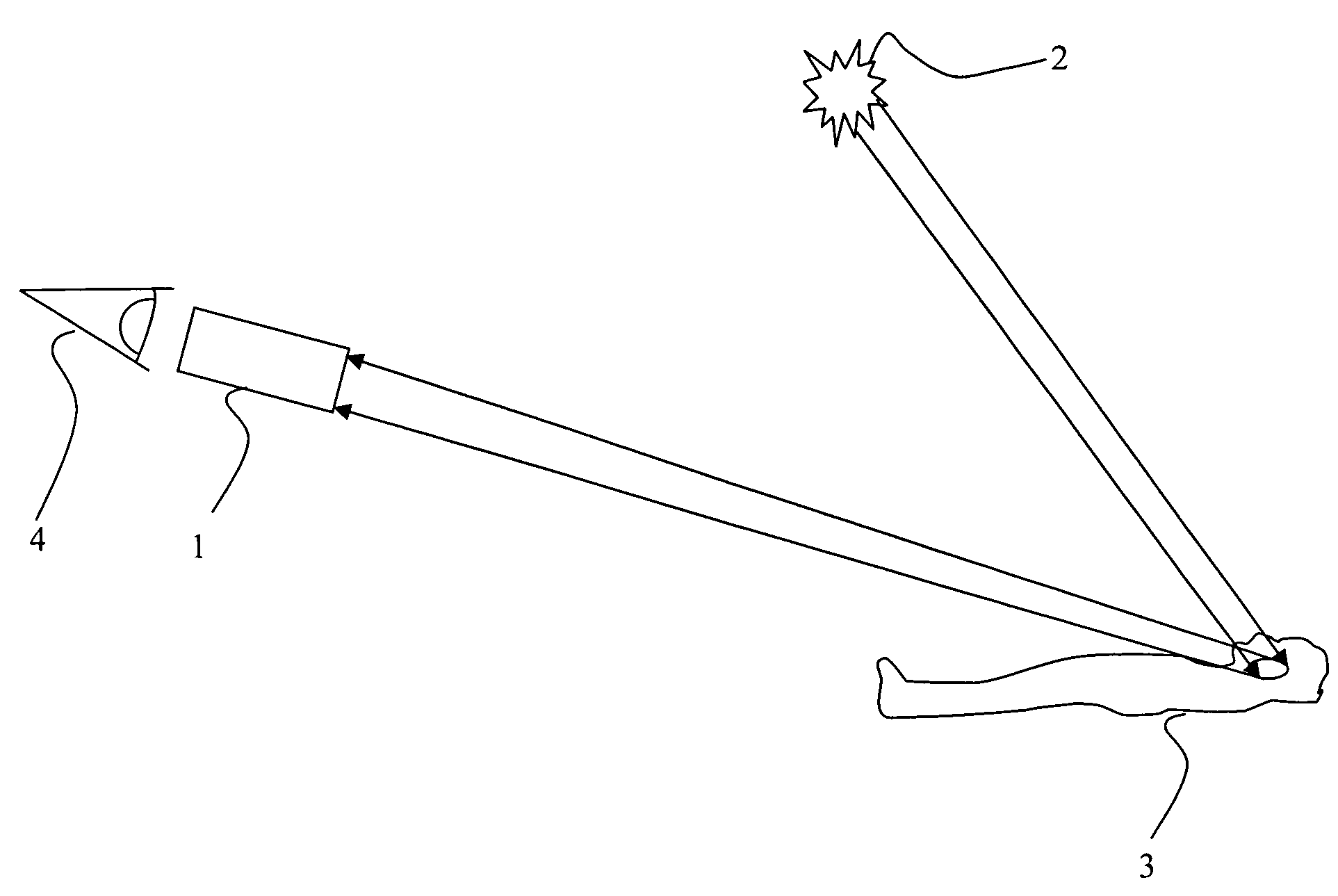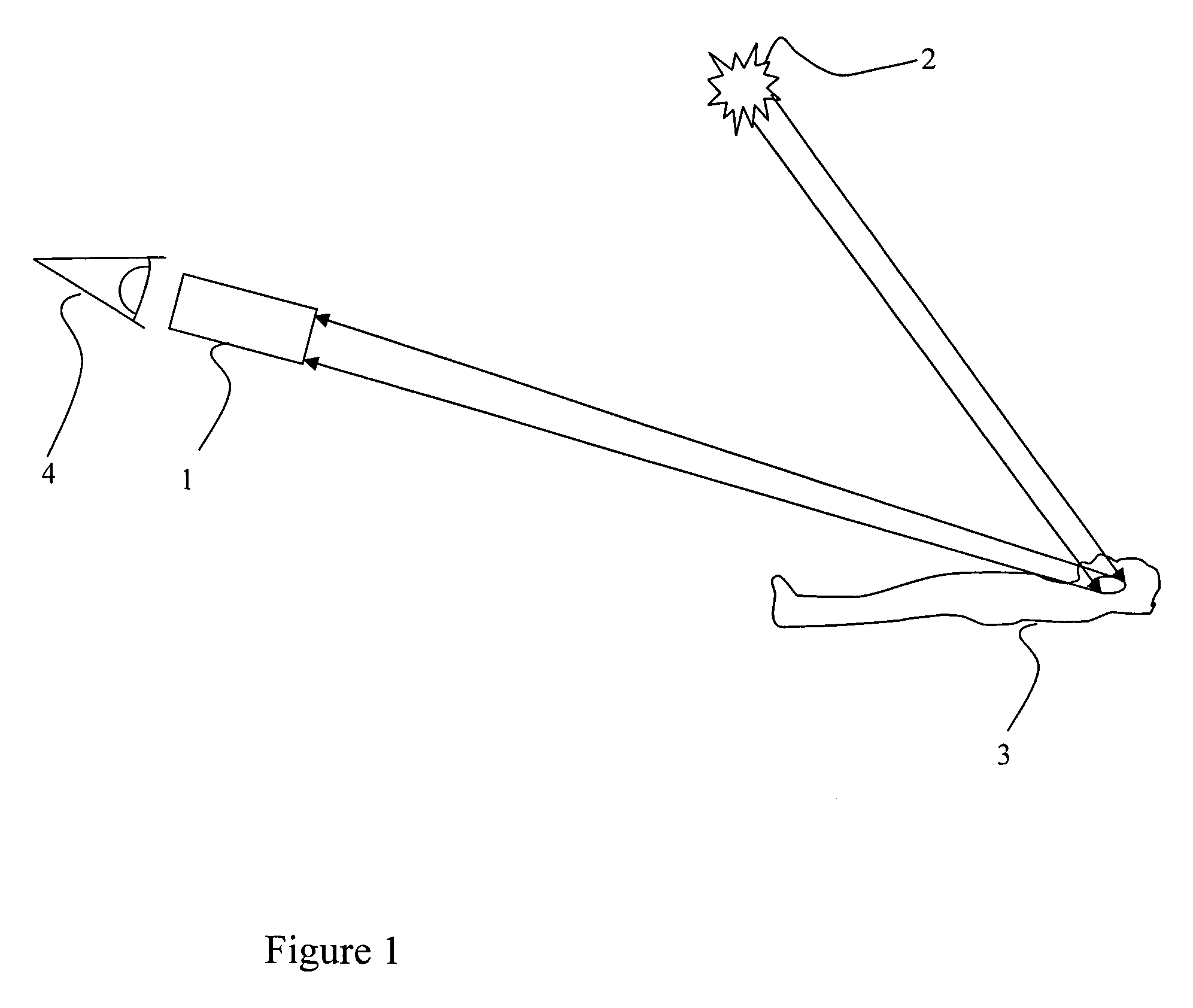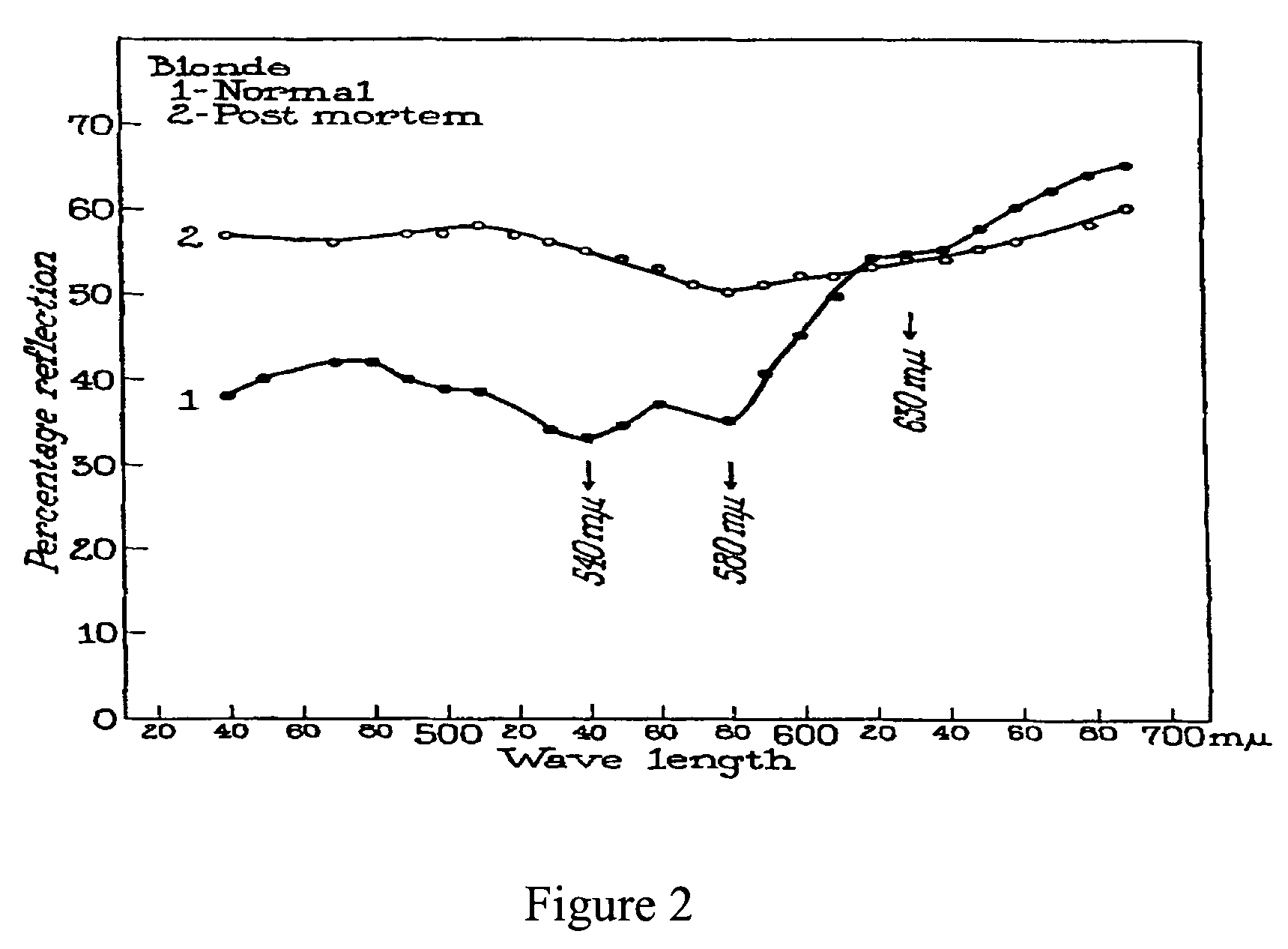Method and apparatus for standoff detection of liveness
a standoff detection and liveness technology, applied in the field of liveness detection methods and apparatuses, can solve the problem that instruments based on this method cannot be detected during operation
- Summary
- Abstract
- Description
- Claims
- Application Information
AI Technical Summary
Benefits of technology
Problems solved by technology
Method used
Image
Examples
Embodiment Construction
[0036]A method for standoff detection of human liveness is illustrated schematically in FIG. 1. It is based on the difference between spectral skin or tissue reflectance of live and dead humans. The difference can be detected remotely by an observer using either a non-imaging viewer or an imaging apparatus. To implement the method an optical viewer with spectral analysis capabilities 1 is used by an observer 4 to locate a subject 3, who is illuminated with a light source 2. The optical viewer compares the spectral signature of the subject with the spectral signature of living human skin or tissue prerecorded into its memory. If these two signatures are similar, the optical viewer generates a signal for the observer to let him know that the subject is alive. If the signatures are different then the signal that indicates liveness is not generated, which means the subject is dead. In another embodiment the viewer generates a signal that indicates that a live subject is not viewed. Gene...
PUM
 Login to View More
Login to View More Abstract
Description
Claims
Application Information
 Login to View More
Login to View More - R&D
- Intellectual Property
- Life Sciences
- Materials
- Tech Scout
- Unparalleled Data Quality
- Higher Quality Content
- 60% Fewer Hallucinations
Browse by: Latest US Patents, China's latest patents, Technical Efficacy Thesaurus, Application Domain, Technology Topic, Popular Technical Reports.
© 2025 PatSnap. All rights reserved.Legal|Privacy policy|Modern Slavery Act Transparency Statement|Sitemap|About US| Contact US: help@patsnap.com



